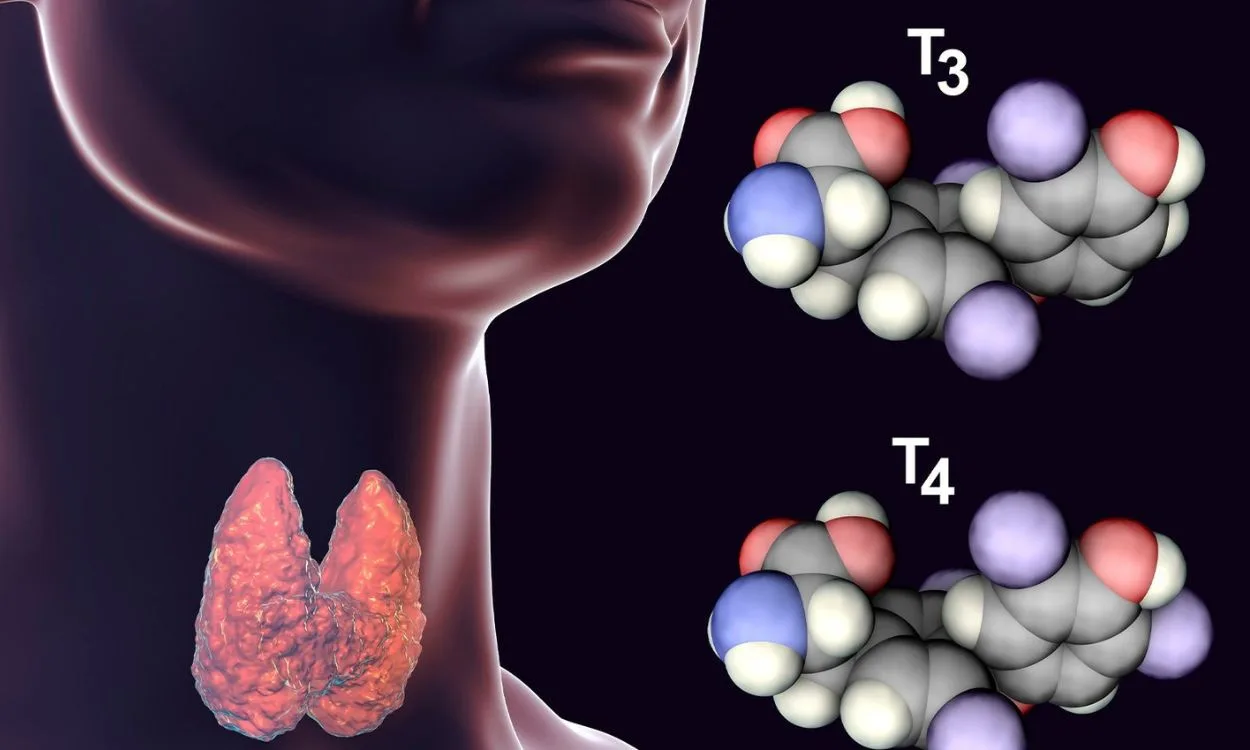What are T3 and T4 levels?
T3 and T4 are hormones produced by the thyroid gland, which is a small, butterfly-shaped gland located in the neck. These hormones play a crucial role in regulating the body’s metabolism, energy levels, and overall growth and development. Understanding T3 and T4 levels is important for assessing thyroid function and diagnosing thyroid disorders.
1. T3 (Triiodothyronine):
- T3 is the active form of thyroid hormone, responsible for regulating metabolism, body temperature, heart rate, and digestion.
- It is produced in small amounts by the thyroid gland, but most of the T3 in the body is actually converted from T4 in various tissues.
- T3 levels are typically measured to assess thyroid function and diagnose hyperthyroidism (an overactive thyroid) or hypothyroidism (an underactive thyroid).
2. T4 (Thyroxine):
- T4 is the primary hormone produced by the thyroid gland and is converted into T3 as needed.
- It plays a critical role in controlling the body’s metabolism, growth, and development.
- T4 levels are often measured as part of a routine thyroid panel to evaluate thyroid function and diagnose thyroid disorders.
Thyroid Function Tests:
- Thyroid function tests are blood tests that measure the levels of T3, T4, and other thyroid-related hormones.
- These tests help in diagnosing thyroid disorders such as hyperthyroidism, hypothyroidism, or thyroid gland dysfunction.
- The results of thyroid function tests can indicate whether the thyroid gland is underactive, overactive, or functioning normally.
Interpreting T3 and T4 Levels:
- Normal T3 levels typically range between 100 and 200 nanograms per deciliter (ng/dL) or from 1.5 to 3.1 nanomoles per liter (nmol/L).
- Normal T4 levels usually range between 4.5 and 11.2 micrograms per deciliter (mcg/dL) or from 58 to 144 nanomoles per liter (nmol/L).
- Abnormal T3 or T4 levels can indicate an underlying thyroid disorder.
- Low T3 or T4 levels may suggest hypothyroidism, while high levels may indicate hyperthyroidism.
Common Thyroid Disorders:
- Hypothyroidism:
- Hypothyroidism occurs when the thyroid gland does not produce enough thyroid hormones, leading to a slower metabolism.
- Symptoms may include fatigue, weight gain, cold intolerance, dry skin, and hair loss.
- Treatment involves hormone replacement therapy to restore normal hormone levels.
- Hyperthyroidism:
- Hyperthyroidism is an overactive thyroid gland that produces excessive amounts of thyroid hormones, leading to an increased metabolism.
- Symptoms may include weight loss, rapid heartbeat, anxiety, irritability, and increased sweating.
- Treatment options include medication, radioactive iodine therapy, or surgery to reduce hormone production.
- Thyroid Nodules:
- Thyroid nodules are abnormal growths or lumps in the thyroid gland.
- They can be either benign (non-cancerous) or malignant (cancerous).
- Further evaluation, including imaging and biopsy, is necessary to determine the nature of the nodule and appropriate treatment.
Conclusion:
T3 and T4 hormones play a vital role in regulating metabolism, growth, and development. Understanding their levels can help diagnose thyroid disorders such as hypothyroidism and hyperthyroidism. If you experience symptoms related to thyroid dysfunction, it is important to consult a healthcare professional for proper evaluation and treatment.
Introducing Fitpaa – Achieve Your Health and Fitness Goals
Are you looking to achieve your health and fitness goals with guaranteed results? Fitpaa is here to help you on your journey to a healthier and fitter life. With our end-to-end AI-driven metabolism monitoring and management technology, we provide personalized solutions for your specific needs.
Fitpaa works in three simple steps:
1. Take the Metabolism Assessment:
- Begin by identifying the root cause of your health condition through a comprehensive metabolism assessment.
- Our medical experts, using Fitpaa’s advanced metabolism monitoring technology, consider various aspects of your life to understand your unique metabolism.
2. Get Your Fitpaa Capsule:
- After the metabolism assessment, consult with our expert team of fitness coaches, nutritionists, and doctors to create your personalized Fitpaa Capsule.
- This capsule combines medical therapy, exercise therapy, nutrition therapy, and cognitive behavior therapy tailored to your metabolism, health goals, lifestyle, and eating habits.
- The Fitpaa Capsule optimizes your metabolism, helping you achieve your health and fitness goals with a 100 percent guarantee.
3. Take Fitpaa Capsule Daily:
- Follow your Fitpaa Capsule daily with the help of Fitpaa’s real-time guidance technology.
- The Fitpaa mobile app provides essential tools such as a virtual workout trainer, diet tracker, performance tracking, and progress tracking to make following your capsule easy.
- Our expert team regularly reviews your progress, making necessary adjustments to ensure you stay on track until you achieve your goal.
Fitpaa is your personal health and fitness team that is dedicated to helping you succeed. We offer goal-oriented services with a lifetime validity, ensuring you achieve your health and fitness goals with a 100% guarantee. With over a lakh lives transformed, we are passionate about transforming yours too.
To experience the joy of getting fit and excel in life, download the Fitpaa app today. Your wellbeing is our mission, and we are here to support you every step of the way. Start your journey with Fitpaa and unlock a world of health and fitness possibilities.









